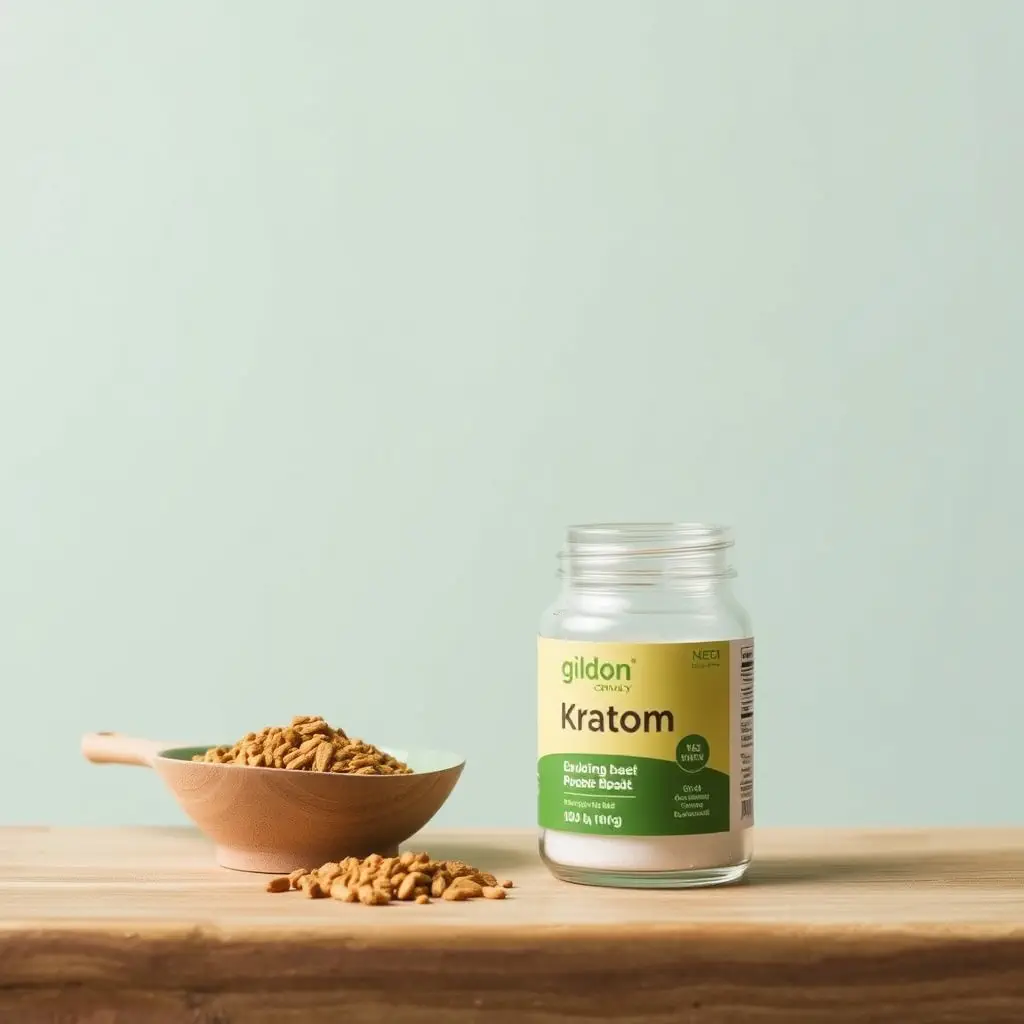Kratom, a natural substance derived from the Mitragyna speciosa tree, has been recognized for its potential as a sleep aid, offering benefits that may significantly improve sleep quality. Its key alkaloids, mitragynine and 7-hydroxymitragynine, engage with opioid receptors in the brain, promoting relaxation and easing the onset of sleep, which users often report leads to deep, restorative slumber. These effects may help address common sleep issues like insomnia and shortened sleep latency by reducing stress- and anxiety-related disruptions. However, it is crucial to approach its use with caution, as individual responses can vary greatly. Users should consult healthcare professionals before incorporating kratom into their sleep routine due to potential interactions with other medications and the need for personalized dosing advice. Starting with a low dose and timing consumption appropriately can help avoid disrupting the sleep cycle while optimizing its benefits. Regular use under professional guidance may contribute to healthier sleep patterns, making kratom a potentially valuable natural sleep aid when used responsibly.
Exploring the multifaceted role of Kratom as a natural sleep aid, this article delves into its potential to enhance deep sleep and elevate overall sleep quality. We will traverse the scientific underpinnings elucidating how Kratom influences sleep patterns, with a focus on its restorative benefits. Additionally, we’ll provide guidance on integrating Kratom into your sleep regimen safely and effectively for the most beneficial slumber experience. Join us as we unravel the advantages of Kratom as a sleep aid and how it can transform your nightly repose.
- Unlocking the Potential of Kratom as a Sleep Aid: An Overview of Its Benefits for Deep Sleep and Enhanced Sleep Quality
- The Science Behind Kratom's Impact on Sleep Patterns and Restorative Rest
- Navigating the Nuances: How to Safely Incorporate Kratom into Your Sleep Routine for Optimal Slumber
Unlocking the Potential of Kratom as a Sleep Aid: An Overview of Its Benefits for Deep Sleep and Enhanced Sleep Quality

Kratom, a tropical evergreen tree native to Southeast Asia, has garnered attention for its potential as a natural sleep aid. Its leaves contain alkaloids, primarily mitragynine and 7-hydroxymitragynine, which have been studied for their influence on sleep patterns. Users reporting on the benefits of kratom as a sleep aid often cite its ability to promote deep, restorative sleep. Unlike many synthetic alternatives, kratom is believed to facilitate a more natural sleep cycle, potentially leading to enhanced overall sleep quality. The alkaloids found in kratom can interact with the body’s opioid receptors, which may contribute to its sedative effects. This interaction can help individuals achieve a state of relaxation conducive to deep sleep, while also reducing the likelihood of middle-night awakenings that disrupt the sleep continuity. Moreover, the use of kratom as a sleep aid is associated with a reduction in the time it takes to fall asleep, known as sleep latency. Its effects are often described as balancing, allowing for both the onset of sleep and sustained rest throughout the night, which can be particularly beneficial for those experiencing sleep disturbances due to stress or other environmental factors. As with any supplement or medication, it is crucial to consult with a healthcare provider before incorporating kratom into a sleep regimen, especially considering individual differences in response to such substances. Proper dosing and monitoring are key to harnessing the full potential of kratom as a sleep aid for deep sleep and improved sleep quality.
The Science Behind Kratom's Impact on Sleep Patterns and Restorative Rest

Kratom, a tropical evergreen tree native to Southeast Asia, has garnered attention in various circles for its potential sleep aid benefits. The science behind kratom’s impact on sleep patterns is rooted in its interaction with the body’s opioid receptors. Mitragynine and 7-hydroxymitragynine, two of its primary alkaloids, can influence the neurotransmitters serotonin and dopamine, which play crucial roles in regulating mood and sleep. These effects contribute to promoting deep, restorative sleep by helping to alleviate insomnia and reduce the time it takes to fall asleep, known as sleep latency. Additionally, kratom may enhance overall sleep quality by mitigating the effects of stress and anxiety, which often disrupt sleep cycles.
Furthermore, the restorative potential of kratom during sleep is a subject of growing interest among researchers. The alkaloids present in kratom leaves can modulate the body’s stress response system, potentially leading to more sustained and restful sleep. This is particularly relevant for individuals experiencing disruptions in their circadian rhythms due to lifestyle or health factors. While the long-term effects of kratom use are still under scrutiny, initial findings suggest that in appropriate doses, it can be a beneficial sleep aid for those seeking improved sleep quality and more efficient restorative periods during the night. As with any supplement, it is essential to consult healthcare professionals before incorporating kratom into one’s sleep regimen, ensuring safe and effective use for the desired sleep aid benefits.
Navigating the Nuances: How to Safely Incorporate Kratom into Your Sleep Routine for Optimal Slumber

When considering natural sleep aids, kratom has emerged as a potential option for those seeking improved sleep quality and deeper slumber. Kratom, derived from the leaves of the Mitragyna speciosa tree, interacts with the brain’s opioid receptors, which can induce relaxation and alleviate discomfort, setting the stage for restful sleep. To safely incorporate kratom into your sleep routine, it is crucial to understand the nuances that govern its effects and dosage.
The most beneficial strains for sleep are typically those with higher alkaloid content, such as the red vein varieties. These strains are known for their sedative properties, which can help in overcoming insomnia and achieving a more restorative night’s sleep. However, it is essential to start with a low dose to gauge individual sensitivity, as the effects of kratom can vary widely among users. Additionally, timing your intake correctly—usually 30 to 60 minutes before bedtime—ensures that the compound has sufficient time to take effect without causing disruption to the sleep cycle. Consistency in dosage and timing can help regulate your sleep patterns over time, leading to a noticeable enhancement in sleep quality. Always consult with a healthcare provider before integrating kratom into your routine, as it may interact with other medications or have contraindications based on personal health conditions. With careful consideration and professional guidance, kratom can be a valuable addition to your sleep toolkit, promoting deep sleep and contributing to overall well-being.
Kratom has emerged as a promising sleep aid, with its benefits in promoting deep sleep and enhancing overall sleep quality well-documented. The scientific evidence supporting its role in improving sleep patterns and facilitating restorative rest is compelling. For those seeking to enhance their slumber, understanding how to safely integrate kratom into a nightly routine is essential for optimizing its effects. By considering the nuances of kratom use, individuals can potentially experience significant improvements in their sleep quality and wake up feeling rejuvenated. As with any supplement, it’s crucial to approach its use responsibly and within the context of good sleep hygiene practices. The insights provided here underscore the potential of kratom as a natural sleep aid, offering a valuable alternative for those who struggle with sleep disturbances.






